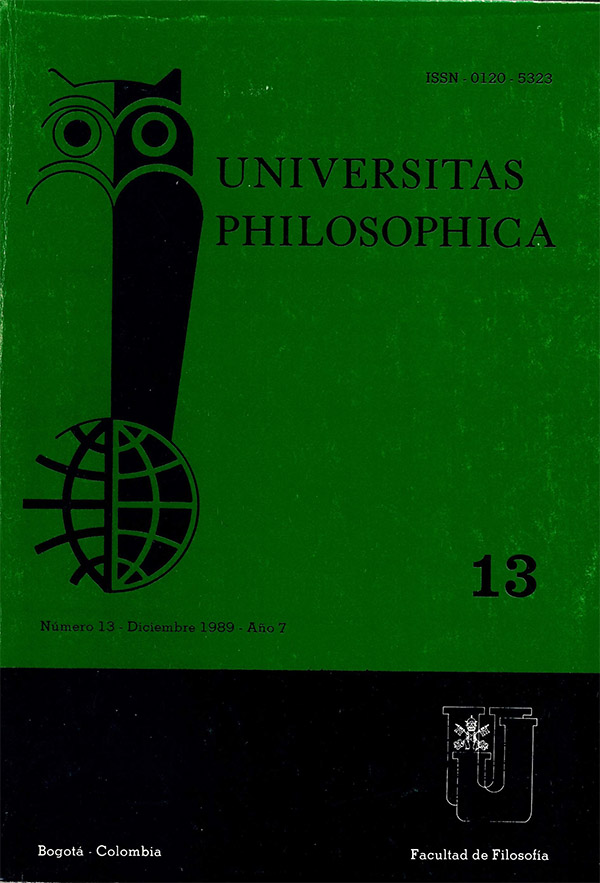Abstract
El presente artículo pretende mostrar cómo se fue elaborando el concepto de filosofía en los primeros escritos de Ludwig Wittgenstein, especialmente en el espacio recorrido entre las Notes on Logic (1913) y el Tractatus Logico-Philosophicus (1922).
En un primer momento, se pretende mostrar el proceso de formación filosófica de Wittgenstein y las principales influencias que se ejercieron sobre él (Schopenhauer, Hertz, Russell, Frege), para, enseguida, rastrear detenidamente la idea de filosofía presente en las Notes on Logic y su relación con la idea de filosofía del Tractatus, dónde afirma que los problemas filosóficos están mal formulados y dicha mala formulación "descansa en la falta de comprensión de la lógica de nuestro lenguaje", siendo así la filosofía una fuente permanente de errores e ilusión. Finalmente, y a manera de conclusión, el autor esboza brevemente lo que, en su concepto sería, según Wittgenstein, la Filosofía como crítica y como análisis.
This journal is registered under a Creative Commons Attribution 4.0 International Public License. Thus, this work may be reproduced, distributed, and publicly shared in digital format, as long as the names of the authors and Pontificia Universidad Javeriana are acknowledged. Others are allowed to quote, adapt, transform, auto-archive, republish, and create based on this material, for any purpose (even commercial ones), provided the authorship is duly acknowledged, a link to the original work is provided, and it is specified if changes have been made. Pontificia Universidad Javeriana does not hold the rights of published works and the authors are solely responsible for the contents of their works; they keep the moral, intellectual, privacy, and publicity rights.
Approving the intervention of the work (review, copy-editing, translation, layout) and the following outreach, are granted through an use license and not through an assignment of rights. This means the journal and Pontificia Universidad Javeriana cannot be held responsible for any ethical malpractice by the authors. As a consequence of the protection granted by the use license, the journal is not required to publish recantations or modify information already published, unless the errata stems from the editorial management process. Publishing contents in this journal does not generate royalties for contributors.


